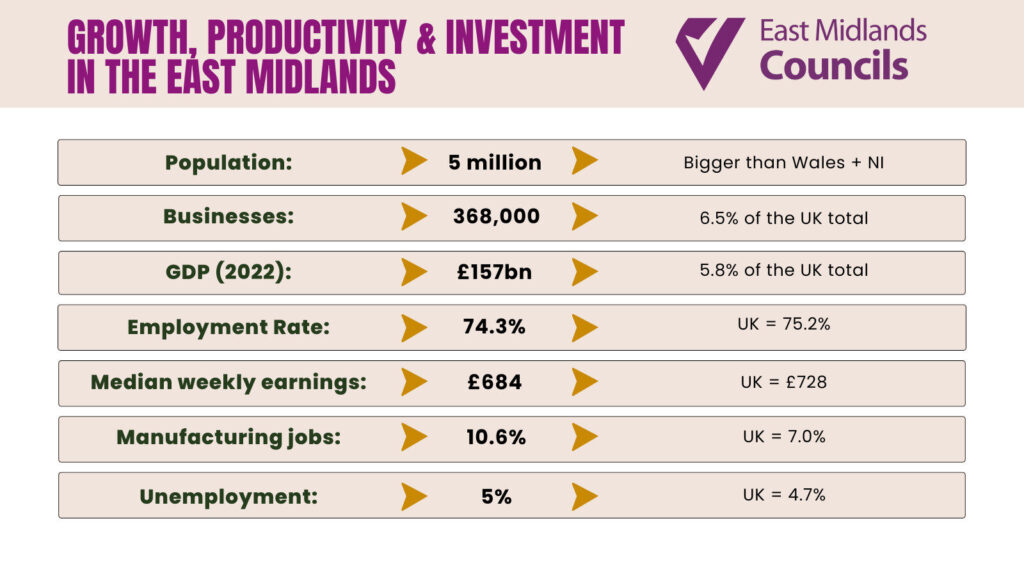
The East Midlands continues to receive the lowest levels of public investment in the UK, according to a new analysis of government data released today by East Midlands Councils.
Despite a growing population and a strong track record on economic growth, the region lags significantly behind on spending in key areas such as transport, infrastructure, and economic development.
Figures drawn from the Treasury’s Public Expenditure Statistical Analyses (PESA) show that, between 2019 and 2024, the East Midlands received £10.8 billion less than it would have if funded at the UK average.
Transport funding in the region is particularly low. In 2023–24, transport spending in the East Midlands was just 54% of the UK average, the lowest level of any UK region or nation.
On rail investment, the disparity is starker still: the East Midlands received just £175 per head, compared to £477 in the West Midlands and £1,047 in London.
Cllr Sean Matthews, Chair of East Midlands Councils, said: “These figures lay bare the extent to which the East Midlands has been taken for granted by Governments of all colours over the last 20 years.
“The disparities in transport and rail spending are truly shocking. Ministers and Government funded transport bodies must do much more to close the investment gap in the East Midlands if we are going to generate the economic growth the country needs.”
While the region has kept pace with national growth rates in terms of GDP, the analysis highlights that this has largely been driven by population growth rather than productivity gains. Labour productivity in the East Midlands remains at just 84.8% of the UK average, with the gap widening over the last 20 years.
The report also compares the East Midlands to neighbouring regions. The West Midlands received £6.7bn more in total public investment over the same five-year period. On economic development alone, the East Midlands received 30% less per head than the West Midlands in 2023–24.
The findings raise serious questions for both Government, new and emerging combined authorities, and Government funded transport bodies. As discussions around devolution and infrastructure priorities continue, regional leaders are calling for long-term, equitable investment to support sustainable growth.
The full report can be found below: